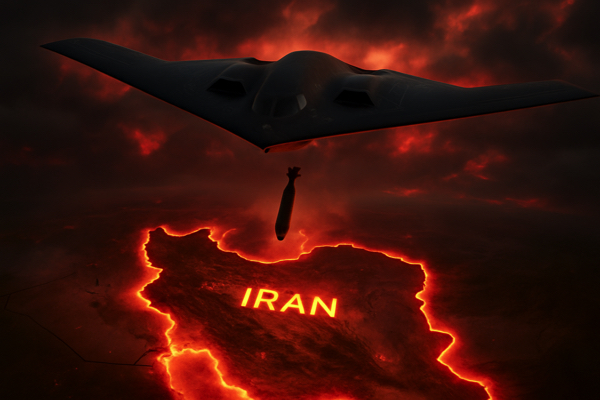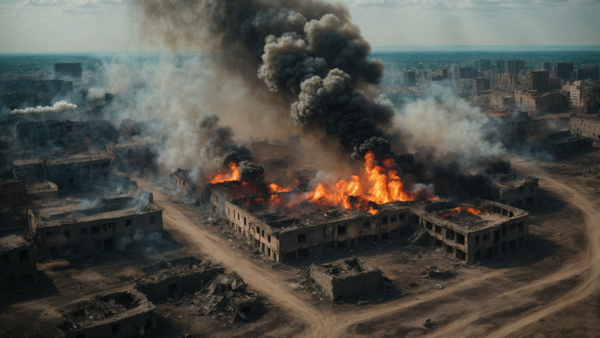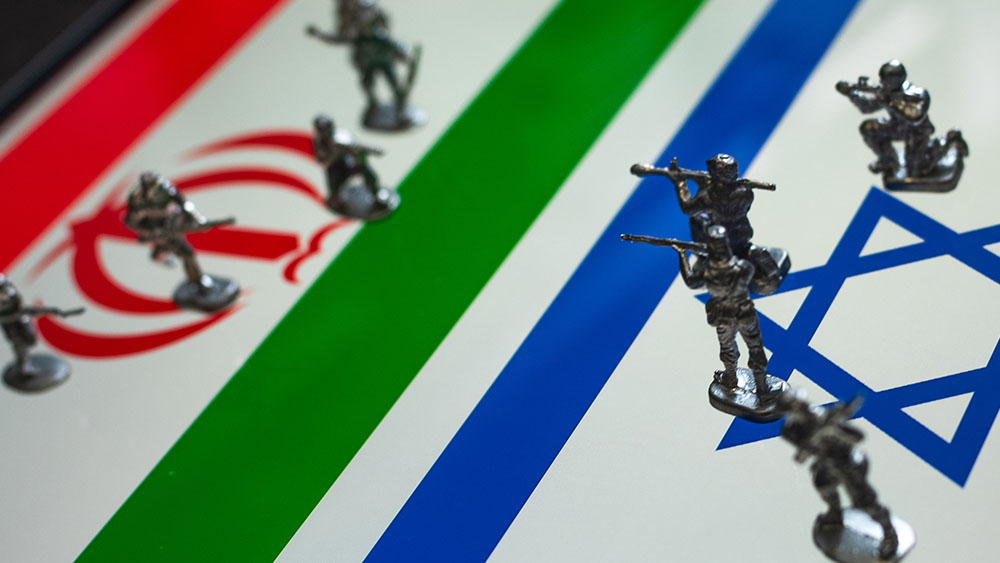 Parler
Parler Gab
Gab
- Israel assassinated Iran’s military leaders and struck nuclear sites, triggering Iranian missile attacks on Tel Aviv and other cities that killed civilians and destroyed buildings.
- Iran’s Supreme Leader vowed retaliation and hundreds of ballistic missiles hit Israel, overwhelming defenses and leaving Israelis in shock.
- Israeli civilians, once celebrating strikes on Iran, faced the horrors of war as missiles destroyed homes, exposing the cost of government aggression.
- The attacks shattered Israel’s illusion of invincibility, with scenes of destruction mirroring those Israel has inflicted on Gaza for years.
- Netanyahu’s escalation backfired, dragging Israel into a wider conflict with no clear resolution, while the U.S. distanced itself from extreme actions.
From celebration to chaos
Early Friday, Israel launched a massive assault on Iran, killing Islamic Revolutionary Guard Corps (IRGC) commanders and striking nuclear sites in what Prime Minister Benjamin Netanyahu called a necessary preemptive action. But by Saturday, the tables had turned. Iranian missiles struck residential neighborhoods in Tel Aviv’s suburbs and the city of Ramat Gan, reducing buildings to rubble and leaving at least three dead and over 200 wounded. Emergency crews scrambled to pull survivors from the wreckage as hospitals moved patients underground, bracing for more attacks. "The night was very scary," Tel Aviv resident Meron Rappaport told Middle East Eye. "There was complete euphoria over how we eliminated the Iranian leadership... but it's clear to me that after a night like last night, people are in shock." The scenes of destruction mirrored those Israel has inflicted on Gaza for years in a much-needed reminder that violence begets violence.A predictable cycle of escalation
Iranian Supreme Leader Ayatollah Ali Khamenei vowed a "crushing response" to Israel’s aggression, and Tehran delivered. Hundreds of ballistic missiles rained down on Israeli cities, with air defenses intercepting some but failing to stop all. "The armed forces of the Islamic Republic will inflict heavy blows upon this malevolent enemy," Khamenei declared. Israel’s Defense Minister Israel Katz responded with empty threats, warning, "If Khamenei continues to fire missiles at the Israeli home front, Tehran will burn." Yet it was Israeli civilians who paid the price for their government’s reckless actions. Ordinary Israelis, once cheering their military’s strikes on Iran, now faced the terrifying reality of war. Orly Yafa-Niger, a 67-year-old resident, described the moment Iranian missiles hit: "We were sitting in a dorm when we heard a loud boom... Then we realised that it hit a building, destroyed homes. We realised that it's happening here and it's real and close." The shock was palpable; Israelis, long insulated from the consequences of their nation’s militarism, were now victims of the very cycle of violence their leaders perpetuated.The myth of Israeli invincibility collapses
For decades, Israeli leaders have peddled the lie that their nation could wage war with impunity, bombing Gaza, assassinating foreign officials, and sabotaging Iran’s nuclear program without facing retaliation. That illusion has now been shattered. Jerusalem-based journalist Orly Noy noted the psychological impact of seeing Israeli cities in ruins: "The Israeli public has been convinced over the years that it can exist here in the region while deeply disdaining all its neighbours and rampaging in a thuggish and murderous manner against everyone... That's why there was something so substantial about the sight of the bombed-out buildings in Ramat Gan." The images—charred apartments, dust-covered survivors, emergency workers sifting through debris—were hauntingly familiar, resembling the devastation Israel has inflicted on Palestinians. The only difference? This time, the bombs fell on Israeli soil. Netanyahu, facing corruption scandals and dwindling public support, has long relied on foreign conflicts to distract from his domestic failures. His latest gamble—escalating hostilities with Iran—has backfired spectacularly. Instead of securing Israel’s safety, he has dragged the nation into a wider war with no clear exit strategy. Meanwhile, the U.S., under President Donald Trump, has cautiously distanced itself from Israel’s most extreme plans, including a rejected proposal to assassinate Khamenei. But with Trump declaring that "sometimes they have to fight it out," there is little hope for diplomatic intervention. Israel’s leaders have sown the wind, and now they are reaping the whirlwind. By choosing violence over diplomacy, Netanyahu has endangered his own people, proving that no amount of military might can guarantee security when a nation embraces endless aggression. The missiles falling on Tel Aviv are not just Iran’s retaliation; they are the inevitable consequence of Israel’s own hubris. Sources for this article include: MiddleEastEye.net CNN.com TheGuardian.com CNBC.comIran-Israel ceasefire: Mixed signals and unresolved tensions cloud a fragile peace
By Willow Tohi // Share
State Department: Trump believes a NEGOTIATED AGREEMENT can resolve Russia-Ukraine conflict
By Ramon Tomey // Share
Satellite images reveal limits of Israeli strikes on Iran’s nuclear infrastructure
By Laura Harris // Share
Assaults against ICE agents linked to hostile political rhetoric surge 500%
By Ava Grace // Share
Tehran-Tel Aviv ceasefire in jeopardy as Israel accuses Iran of missile attacks
By Ramon Tomey // Share
Governments continue to obscure COVID-19 vaccine data amid rising concerns over excess deaths
By patricklewis // Share
Tech giant Microsoft backs EXTINCTION with its support of carbon capture programs
By ramontomeydw // Share
Germany to resume arms exports to Israel despite repeated ceasefire violations
By isabelle // Share










